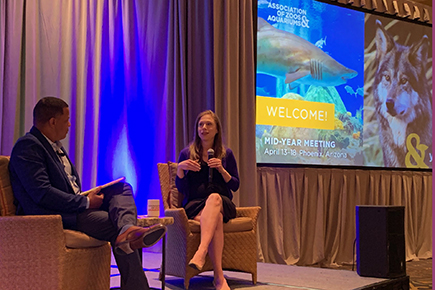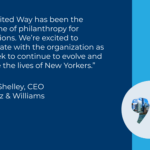Schultz & Williams was thrilled to attend the Association of Zoo and Aquarium’s (AZA) Annual Mid-Year Meeting hosted by the Phoenix Zoo. We were delighted to meet with many of our clients and friends to learn about the exciting work they’re doing in the field of animal conservation. We were also honored to participate in meaningful conversations about how the industry continually strives to move its mission forward. Rick Biddle, our managing director of strategic, business & organizational consulting and Jill Macauley, associate director, attended the conference and came away full of new insights and inspiration.
The nature of the zoo and aquarium industry is complex – industry leaders must care for live collections, engage millions of visitors annually and actively address critical conservation needs – all while facing external pressure from groups and individuals who may oppose the very existence of these institutions.
As inspiration for these challenges, this year’s keynote speaker was Chelsea Clinton, who recently wrote Don’t Let Them Disappear, a children’s book about the animals who share our planet and what we can do to help them survive.
Chelsea brings an interesting perspective as a young parent. She shared an inspirational story about her memories of visiting the Little Rock Zoo as a child and how those formative experiences shaped and inspired her to become a life-long advocate for conservation. It was also her catalyst for writing the book.
Chelsea’s book tour, which is taking place at zoos and aquariums across the country, is helping to bring greater awareness to the industry and a powerful voice to the value and importance of zoos and aquariums to our communities.
During her speech, Chelsea shared another powerful story. She was recently asked directly by the press about the challenging and even controversial role of zoos in our communities. Chelsea responded beautifully, saying that it is our duty to champion the AZA-accredited institutions that exemplify the highest standards in animal care, environmental education and conservation programs across the globe. We should follow her lead–clearly and loudly sounding the message about the critical work of these institutions and the role they play in their communities and the lives of young children.
For more about the role AZA and its accredited institutions play in field of conservation, education programming and mission-focused research, visit the website.





